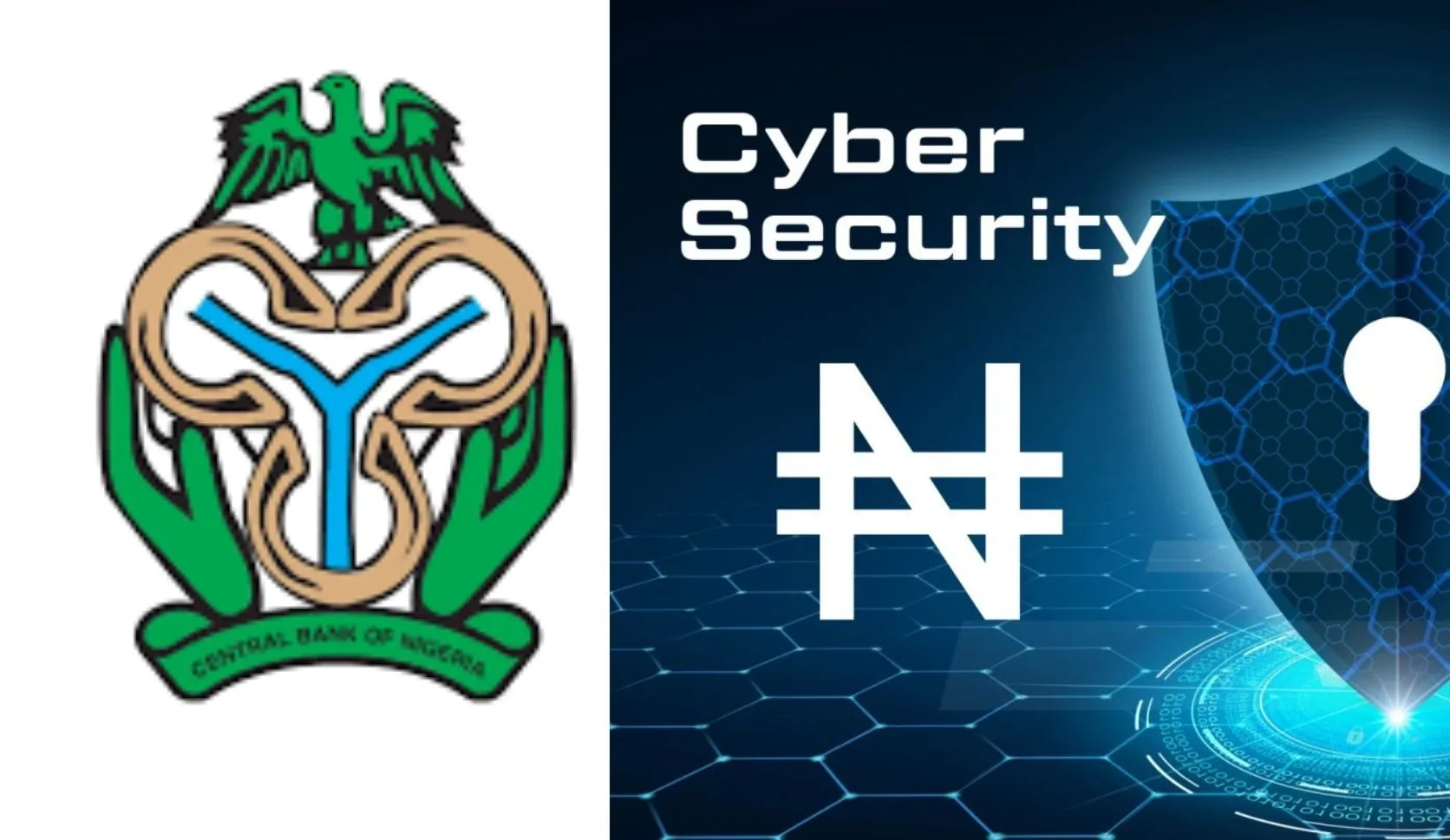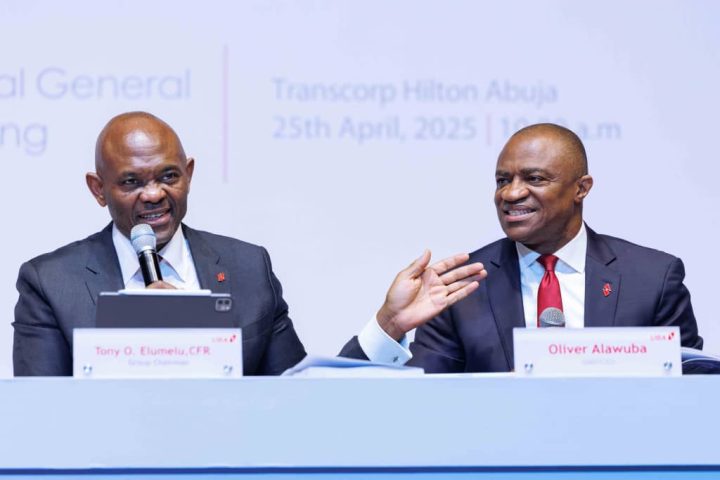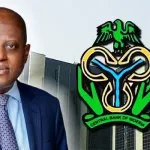Everyone appears to know the reason for bank charges. But in recent times, there seems to be no end to the introduction of bank charges, many of them taxing the same thing in different ways. ATM withdrawal fees tax essentially the same thing that government transaction levies also tax, just like electronic transfer levies and stamp duty tax. Account maintenance fees are charged yet customers still face specific services on the same accounts such as charges for electronic statements. This is not to mention hidden fees, amorphous deductions, arbitrary names given to transactions (suc as international) to increase charges.
READ ALSO: CBN Reduces Cybersecurity Levy On Electronic Transactions To 0.005%
Join our WhatsApp ChannelAs citizens struggle to afford basic meals, suffer from fuel scarcity and insecurity, exorbitant bank charges and the recent cybersecurity levy, the anguish will only deepen. Many pay multiple fees, only for these funds to be channelled into private banks amidst rampant corruption and ineffective regulatory oversight. This financial burden undermines trust in banking institutions and exacerbates the hardships faced by citizens striving for stability and livelihood. Amidst the aforementioned, one can still not overlook the need for bank charges.
The Need for Bank Charges
Bank charges are essential for covering operational costs like staffing, technology maintenance, and regulatory compliance. They also fund services such as card replacements and wire transfers. While many believe bank charges are solely bank-imposed, government charges also exist, serving different purposes. There is always a formal agreement between the government and the banks on how much to impose. Bank charges include maintenance fees, overdraft fees, and foreign transaction fees. In contrast, government charges consist of taxes and regulatory fees. Both types of charges are crucial for funding services and maintaining financial stability. For instance, the Central Bank has mandated various charges, including processing fees on large cash deposits, with specific guidelines established in December 2019.
Timeline of Bank Charges in the Past Ten Years
Based on reports, the Timeline of Bank Charges in Nigeria (2013 – 2024) is listed below.
- December 2013: The Central Bank of Nigeria (CBN) issues the Guide to Bank Charges, establishing a framework for the application of fees by banks and other financial institutions.
- On January 1, 2014: The charges outlined in the 2013 guide become effective, standardising fees across banks for various services.
- Then on May 1, 2017: The CBN released a revised Guide to Charges by Banks; allowable charges for various banking services to enhance transparency and competition were also updated.
- On September 19, 2019: The CBN announces that processing fees on cash deposits exceeding N500,000 for individuals and N3 million for corporate accounts will be implemented.
- January 1, 2020: The revised guide takes effect, further clarifying allowable charges. Electronic funds transfer fees are adjusted to N50 for transactions above N50,000, N25 for N5,000 to N50,000, and N10 for amounts below N5,000—these were the significant changes made. While ATM withdrawal fees from other banks are reduced to N35 after the third withdrawal in a month.
- Then, on December 11, 2023: The CBN suspends processing fees on cash deposits above the specified thresholds due to public backlash against high banking charges amid a cash crunch.
- May 6, 2024: The CBN announces the implementation of a 0.5% cybersecurity levy on all electronic transactions as mandated by the Cybercrime (Prohibition, Prevention, etc.) Act of 2015.
- On May 17, 2024: Following public backlash against the high levy rate, the government then suspends the implementation of the cybersecurity levy.
- September 18, 2024: The CBN announces a reduction of the cybersecurity levy to 0.005%, which will be enforced on all electronic transactions.
- Most recently, on September 19, 2024: The CBN officially reintroduces the cybersecurity levy at the reduced rate of 0.005%, as part of its Monetary, Credit, Foreign Trade, and Exchange Policy Guidelines for the fiscal years 2024-2025.
- Looking at the above timeline, one can understand how much money Nigerian citizens, who hardly feed thrice daily, have been spending as bank charges. At the end of it all, all money will be lost through corruption on the parts of the government, the CBN and the banks themselves; hence these taxes and fees are not managed well to favour citizens. Consequently, these actions further exacerbate the suffering of Nigerian citizens.
Evidence of Corruption and the Rationale Behind Bank Charges
Former Governor of the Central Bank of Nigeria, Godwin Emefiele, faced serious allegations, including procurement fraud and embezzlement of state funds. Such high-profile cases raise concerns about the integrity of banking operations and regulatory oversight in the country. This is one reason that will make Nigerians, invariably bank users, question bank charges and the government’s regulatory policies regarding these charges.
The case involving Betta Edu, the suspended Minister of Humanitarian Affairs, investigated by the Economic and Financial Crimes Commission (EFCC) for allegations of financial misconduct, further erodes customer trust in banks as citizens increasingly perceive the government as a failure. Betta Edu and Halima Shehu, the suspended CEO of the National Social Investment Programme Authority, were accused of improperly transferring N585 million in humanitarian funds meant for vulnerable groups into a private bank account. This raises questions about whether the banks involved were unaware that these accounts were private ones.
This action reportedly violates Nigerian financial regulations prohibiting public funds from being deposited into private accounts. These stories, coupled with Transparency International’s 2023 Corruption Perceptions Index, where Nigeria scored 25 out of 100, ranking 145th out of 180 countries, indicate that officials misusing funds and engaging in corrupt practices contribute to high costs for citizens, including banking fees and service charges. It is assumed that the government and banks, through their actions, make saving and livelihoods difficult for Nigerians.
High bank charges and allegations of corruption can lead to a loss of trust among customers. Research indicates that excessive bank charges hinder effective saving mobilisation and contribute to over 30% of Nigerian bank customers switching to other banks in search of lower fees. Citizens frequently express dissatisfaction over high banking charges and fees imposed by the government. This dissatisfaction is often linked to broader concerns about transparency and accountability in financial transactions.
Though there might not be similar or double kinds of charges, in Nigeria, banks impose various overlapping charges, including processing fees for large cash deposits, account maintenance fees, electronic funds transfer fees, and a recent 0.005% cybersecurity levy on transactions. Imagine someone making multiple transactions in a day. These multiple fees can create confusion and lead customers to feel they are facing double charges for similar services.
Nigerians’ Responses to Cybersecurity Levy
The recent announcement concerning the cybersecurity levy has incited national backlash and reactions. According to Destiny Amana, President of Nigeria Internet Group (NIG): “The recent announcement by the Central Bank of Nigeria (CBN) regarding the introduction of a cybersecurity levy on electronic transactions is a matter of grave concern… We cannot ignore the potential negative impact of this levy on the Nigerian economy, businesses, and consumers.”
Also, Joe Ajaero, President of the Nigeria Labour Congress (NLC), commented on the 0.5% cybersecurity levy during a press conference following the CBN’s announcement. He condemned the levy, stating:
“NLC vehemently condemns the recent directive by the Central Bank of Nigeria to levy a 0.005 per cent ‘Cybersecurity Levy’ on electronic transfers… This move threatens to exacerbate the financial strain already faced by the populace.”
For Tommy Etim, National Vice President of Trade Union Congress (TUC):
“If people are discouraged from banking because of deductions such as cybersecurity levy, it means that the informal economy and entrepreneurs will suffer.”
The above comments reflect further suffering meted out on Nigerian businesses and livelihoods. They also highlight widespread concern over the potential economic impact and fairness of the newly introduced cybersecurity levy.
The Argument against Over-Relying on Taxes for Internally Generated Revenue (IGR)
According to a Carnegie Endowment report, “Economic structure may constrain taxation expansion more severely in developing countries than in developed countries,” indicating that relying solely on taxes can limit revenue growth and stability. Additionally, Mick Moore notes that a “governance dividend” can be achieved when governments dependent on broad general taxation become more responsive to citizens’ needs, suggesting that diverse revenue sources can enhance accountability and governance.
READ ALSO: Economic Downturn: Is UBA Your Trusted Bank For Investments?
These arguments emphasise the need for diversification to ensure financial stability. Over-reliance on tax revenue can make governments vulnerable to economic downturns, especially in developing countries with narrow tax bases. Diversifying revenue sources such as fees and income from state-owned enterprises fosters economic growth and stability while enhancing trust in banks and government institutions.
Dr Mbamalu is a Jefferson Fellow, member of the Nigerian Guild of Editors (NGE) and a renowned Publisher.
Dr. Marcel Mbamalu is a communication scholar, journalist and entrepreneur. He holds a Ph.D in Mass Communication from the University of Nigeria, Nsukka and is the Chief Executive Officer Newstide Publications, the publishers of Prime Business Africa.
A seasoned journalist, he horned his journalism skills at The Guardian Newspaper, rising to the position of News Editor at the flagship of the Nigerian press. He has garnered multidisciplinary experience in marketing communication, public relations and media research, helping clients to deliver bespoke campaigns within Nigeria and across Africa.
He has built an expansive network in the media and has served as a media trainer for World Health Organisation (WHO) at various times in Northeast Nigeria. He has attended numerous media trainings, including the Bloomberg Financial Journalism Training and Reuters/AfDB training on Effective Coverage of Infrastructural Development of Africa.
A versatile media expert, he won the Jefferson Fellowship in 2023 as the sole Africa representative on the program. Dr Mbamalu was part of a global media team that covered the 2020 United State’s Presidential election. As Africa's sole representative in the 2023 Jefferson Fellowships, Dr Mbamalu was selected to tour the United States and Asia (Japan and Hong Kong) as part of a 12-man global team of journalists on a travel grant to report on inclusion, income gaps and migration issues between the US and Asia.




















Follow Us